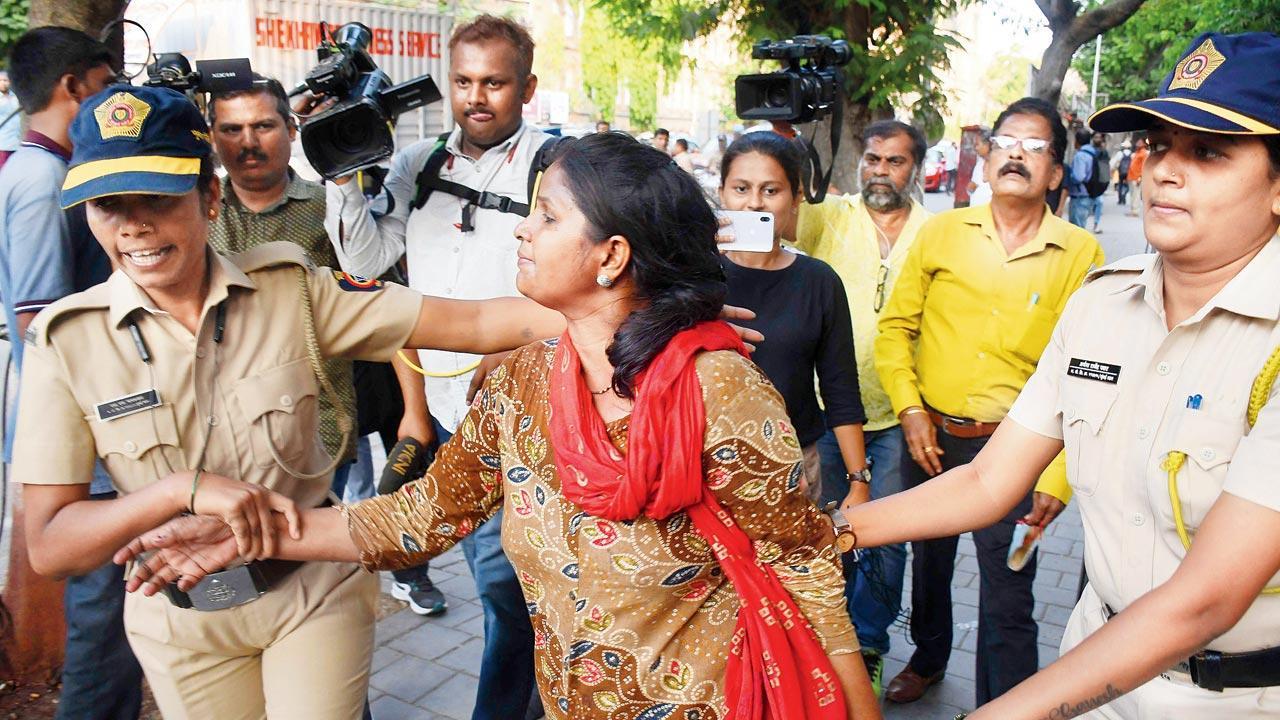Unwise move that has hastened the death of trade unionism
Updated On: 11 April, 2022 08:01 AM IST | Mumbai | Dharmendra Jore
ST employees’ violent display at Sharad Pawar’s home has done immeasurable damage to the people who believe in peaceful protest for justice

The police with an MSRTC protester outside Killa Court on Saturday. Pic/Ashish Raje
 Trade unionism has been synonymous with politics. Great political leadership has been shaped while fighting for the cause of workers. Some leaders lost credibility when things went wrong but somehow managed to stay afloat either by course correction or simply switching sides.
Trade unionism has been synonymous with politics. Great political leadership has been shaped while fighting for the cause of workers. Some leaders lost credibility when things went wrong but somehow managed to stay afloat either by course correction or simply switching sides.
Mumbai has seen the best and the worst of trade unionism, which is now on the brink of extinction. The loss, if any, has been loaded on the workers’ side. The recent incident involving the state public transport employees resorting to violence at the Nationalist Congress Party president Sharad Pawar’s residence has done considerable harm to the entire workers’ cause.
The ‘condemnable’ violence has pushed dying trade union activism to the darkest corner. The police suspect that the attack was well planned and executed under specific instructions. Their leader, who usurped one of the longest agitations in the history of the transport corporation, has been arrested and his role is being probed. Over a hundred workers, men and women, have been arrested. And, if they are all employees of the corporation, then they are starting to take strict action. The court — which decided their case a day before the attack had asked the state to be lenient with the striking employees — may think twice before extending them a hand of mercy again.



